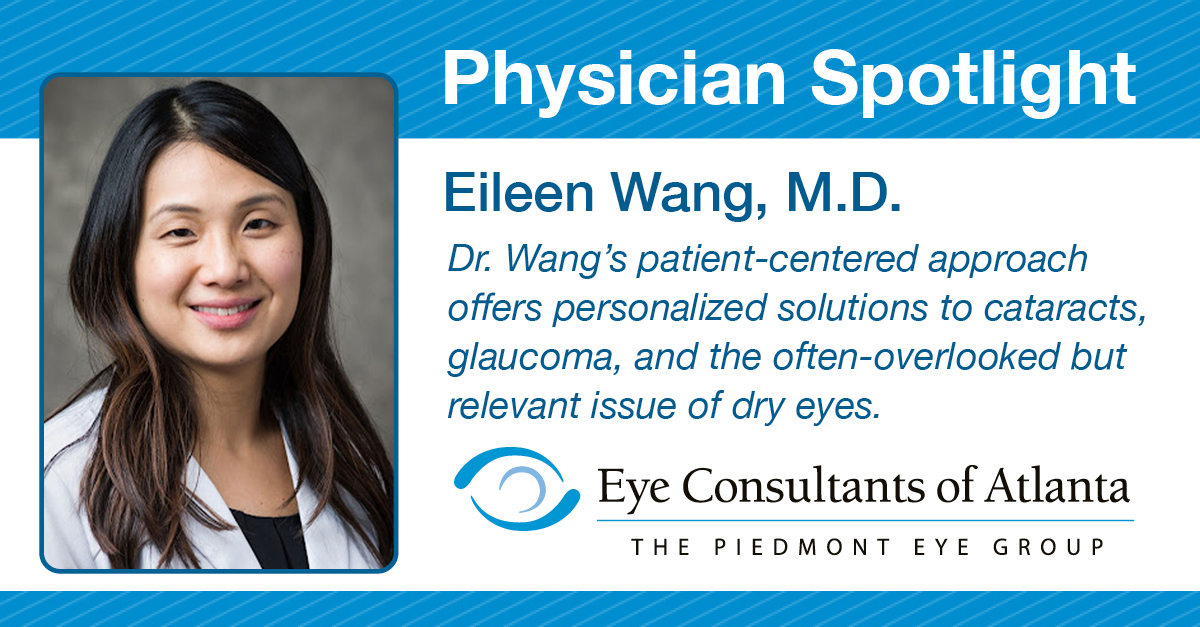In the ever evolving field of ophthalmology, Dr. Eileen Wang is an acclaimed board-certified ophthalmologist, specializing in a variety of eye care treatments. Dr. Wang’s patient-centered approach offers personalized solutions to cataracts, glaucoma, and the often-overlooked but relevant issue of dry eyes.
Dry eye syndrome affects millions of Americans annually. The three primary disruptions that cause dry eyes are reduced tear production, increased tear evaporation, or the wrong tear mixture. Factors like age, medical conditions, medication, hormonal issues, and harsh environmental conditions can all play a role.
When assessing a patient with dry eyes, Dr. Wang inquires about their lifestyle. “I ask them about their environment. Do they spend a lot of time on a computer or a screen?” says Dr. Wang. “With an increase in screen time, many patients come in complaining about their eyes being tired or feeling uncomfortable. A recent study showed that you blink less when staring at a screen. Blinking rate decreases, which causes you to lack new tears to keep your eyes moisturized.”
In the past, dry eyes were associated with aging. “A lot more people are showing symptoms much younger because of the screen usage,” says Dr. Wang.
For persistent symptoms, Dr. Wang provides a holistic approach, offering solutions ranging from artificial tears, warm compresses, and over-the-counter ointments to prescription eye drops and the innovative Tyrvaya nasal spray designed to induce tears and alleviate dryness.
If symptoms continue, punctal plugs are introduced. The implantation of punctal plugs is a quick and painless outpatient procedure that blocks tear ducts to enhance moisture retention in the eyes.
For individuals with severely dry eyes, alternative treatments are considered. One method involves the use of an amniotic membrane ring derived from placenta tissue. By placing this membrane on the eye, the rich source of growth factors it contains is absorbed by the ocular surface. This process aims to enhance tear quality, stabilize the tear film, and reduce inflammation for improved eye health.
Dr. Wang emphasizes the possibility of dry eyes serving as a symptom of a larger issue. Autoimmune diseases and certain medications can contribute to such conditions. It is important to take these symptoms seriously and seek medical attention.
“Discussing your symptoms with a doctor can be crucial in finding the right solution,” says Dr. Wang. “Together, we can create a personalized treatment plan that meets your needs.”
If you or someone you know is struggling with dry eye syndrome, experts at Eye Consultants of Atlanta are here to help. Schedule an appointment online or call us at 404-351-2220.

